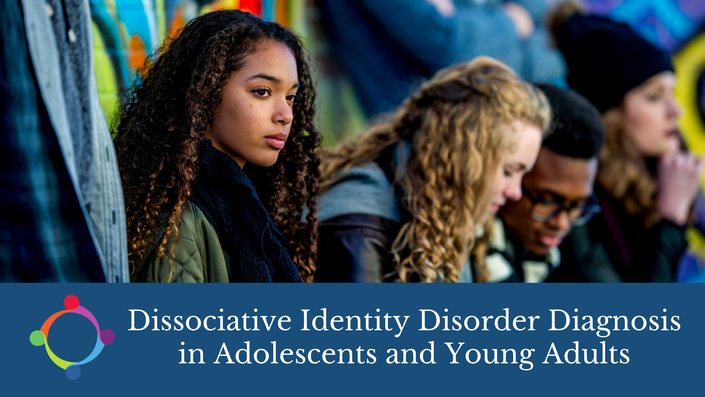About this presentation
To ethically serve the gate keeping function of supervision described in the 2014 APA Guidelines for Clinical Supervision of Health Service Psychologists, psychologists providing supervision are assumed to have achieved competence both as psychologists and as supervisors.
While formal clinical training in the practice of clinical supervision has become increasingly required in doctoral programs, many mental health providers currently tasked with providing supervision have not received a formal course or have not received ongoing training in this area.
Additionally, supervision of licensed mental health providers is not often included in training programs. This session will review APA guidelines as well as guidelines for Social Workers, Marriage and Family Therapists, and Counselors. This session will provide multiple examples of supervision models, and describe common ethical dilemmas that arise in supervision.
Participants will learn effective strategies for giving feedback, as well as the differences between clinical supervision of a trainee and a licensed provider.

What you'll learn
At the conclusion of this presentation, attendees should be able to describe ethical guidelines, provide multiple examples of supervision models, and describe common ethical dilemmas that arise in supervision. Participants will learn effective strategies for giving feedback, as well as the differences between clinical supervision of a trainee and a licensed provider.
Learning Objectives:
- Describe the supervision competencies outlined in the APA guidelines.
- Understand areas ethical dilemmas most frequently arise in clinical supervision.
- Awareness in differences between supervision of clinical trainees and consultation with licensed providers.
- Identify several models of supervision and describe characteristics
- Understand resources available to supervisors for additional support, consultation, and training
About your teachers
Robin Lange, Ph.D., counseling psychology. Dr. Lange has provided supervision of masters and doctoral level trainees for the past 15 years. She has received extensive training and supervision in the practice of supervision. Dr. Lange assisted, in conjunction with Dr. Sheila Crowell, in the development and administration of the psychology training program at the Utah Center for Evidence Based Treatment for the past nine years. The training program serves all psychology programs in Utah and several programs outside of the state. Dr. Lange currently specializes in the supervision of licensed clinicians and provides regular in house supervision to program directors of UCEBT as well as external consultation to clinicians in the community. A lifetime learner, Dr. Lange continues to receive regular supervision of supervision and hopes to hone her practice by learning from the experience of supervisees and participants in this training course.
Rachel Hopkins, Psy.D. earned her Doctorate in Clinical Psychology from The Institute of Graduate Clinical Psychology (IGCP) at Widener University in 2018. She is currently the Program Director of the Anxiety and Mood Team at the Utah Center for Evidence Based Treatment (UCEBT). In addition to direct clinical work treating clients with a wide variety of presenting concerns, Dr. Hopkins also role also involves administrative responsibilities in team management, program development, and supervision. She currently supervises licensed clinicians, unlicensed doctoral and postdoctoral trainees, and administrative staff at UCEBT and continues to receive regular supervision of supervision. Dr. Hopkins is a passionate life-long-learner committed to personal growth, empowering growth of others, and collaborative leadership.

CE Approval
UCEBT is approved by the American Psychological Association to sponsor continuing education for psychologists. UCEBT maintains responsibility for this program and its content.
Additionally, this presentation is approved for ethics homestudy CE credit through UPA, NASW-UT, UAMFT, and UMHCA.
Program Notices
This program discusses strategies for complying with APA supervision guidelines and covered ethics codes. It may not include information on all applicable state laws. Misapplication of the materials, or errors in the materials, could result in non-compliance with applicable laws or ethics codes.
Conflicts of Interest: UCEBT accepts trainees from local institutions.
Commercial Support: None.
References
American Psychological Association. (2014). Guidelines for Clinical Supervision in Health Service Psychology. Retrieved from http://apa.org/about/policy/guidelines-supervision.pdf
Klein, A. B., Barnes Horowitz, N. M., Tran, I., Rabasco, A., Steele, E. H., & Breaux, R. (2023). Perceived barriers to seeking mental health treatment among clinical psychology graduate students. Training and Education in Professional Psychology, 17(2), 208–212. https://doi.org/10.1037/tep0000413
Rowen, J., Giedgowd, G., & Demos, A. (2023). Effectiveness of videoconferencing psychotherapy delivered by novice clinicians in a training clinic. Training and Education in Professional Psychology, 17(2), 158–166. https://doi.org/10.1037/tep0000410
Wilcox, M. M., Drinane, J. M., Black, S. W., Cabrera, L., DeBlaere, C., Tao, K. W., Hook, J. N., Davis, D. E., Watkins, C. E., & Owen, J. (2022). Layered cultural processes: The relationship between multicultural orientation and satisfaction with supervision. Training and Education in Professional Psychology, 16(3), 235–243. https://doi.org/10.1037/tep0000366
Miller, A. E. (2022). Self-care as a competency benchmark: Creating a culture of shared responsibility. Training and Education in Professional Psychology, 16(4), 333–340. https://doi.org/10.1037/tep0000386
Perle, J.G., Zheng, W. A Primer for Understanding and Utilizing Telesupervision with Healthcare Trainees. J. technol. behav. sci. (2023). https://doi.org/10.1007/s41347-023-00322-5



